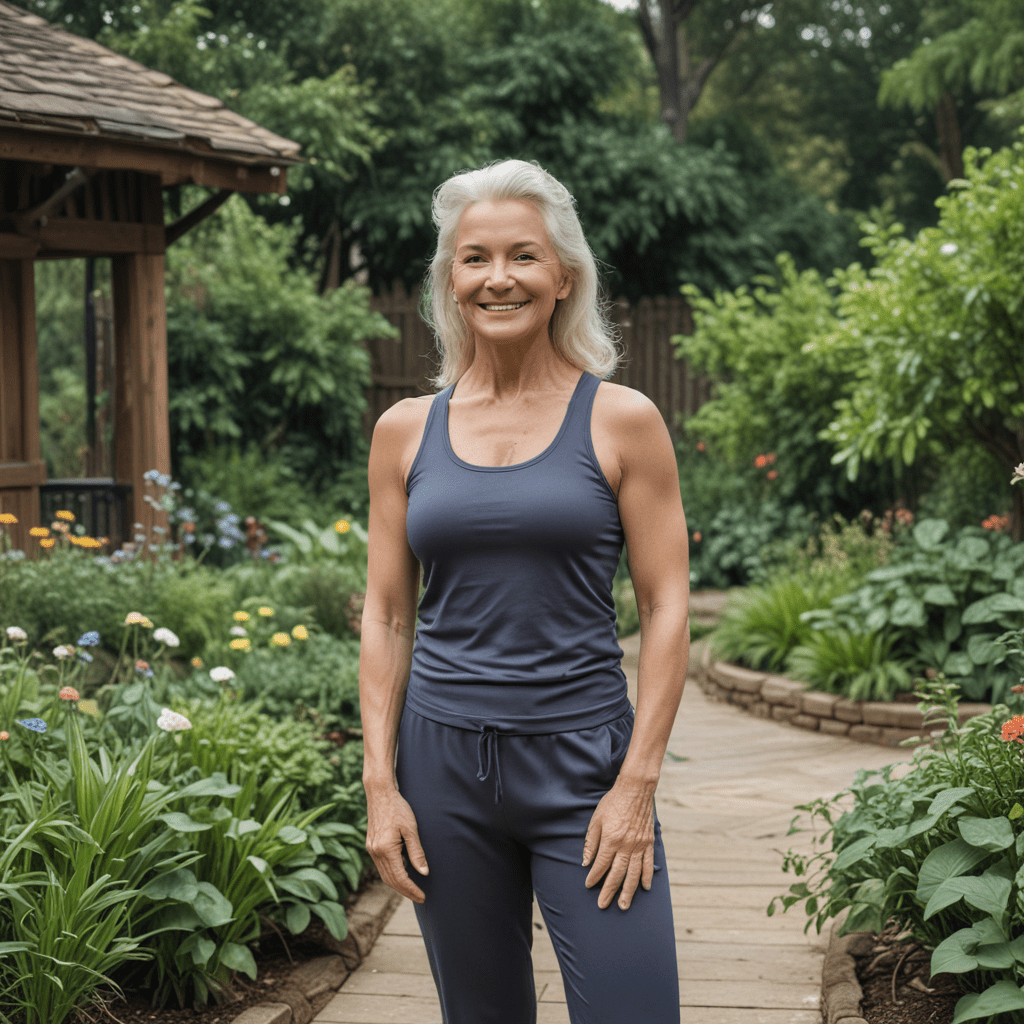1. Introduction
As we age, maintaining our physical and mental well-being becomes increasingly important. Senior fitness retreats offer a unique opportunity to rejuvenate both body and mind, and mindful gardening is an emerging practice that can enhance these experiences. By combining the benefits of physical activity, mindfulness, and connection with nature, these retreats provide a holistic approach to senior wellness.
2. Benefits of Mindful Gardening for Seniors
Mindful gardening involves engaging in gardening activities with a focus on the present moment and the connection between mind, body, and the natural world. For seniors, this practice offers numerous benefits:
Reduced Stress and Anxiety: Studies have shown that gardening can reduce stress and anxiety levels in older adults. The calming effects of nature, combined with the physical activity involved in gardening, promote relaxation and well-being.
Improved Mood and Cognitive Function: Gardening has been linked to improved mood and cognitive function in seniors. The sensory stimulation and engagement with nature can help reduce symptoms of depression and improve cognitive abilities such as memory and attention.
Increased Physical Activity: Gardening provides a low-impact form of physical activity that is suitable for seniors of all fitness levels. It involves movements such as digging, planting, and weeding, which can improve flexibility, strength, and balance.
3. Incorporating Mindful Gardening into Retreats
To incorporate mindful gardening into senior fitness retreats, it's essential to create a welcoming and supportive environment. This includes:
Creating a Sensory Garden: Designing a garden with a variety of plants that engage different senses, such as fragrant flowers, textured foliage, and edible herbs, can enhance the mindful gardening experience.
Providing Guided Mindfulness Practices: Offering guided mindfulness practices, such as mindful breathing or body scans, before and during gardening activities can help participants connect with the present moment and enhance their sensory awareness.
4. Creating a Sensory Garden
When creating a sensory garden for mindful gardening, consider the following elements:
Visual Appeal: Include a variety of colors, shapes, and textures in the plant selection to stimulate visual interest.
Fragrant Plants: Incorporate plants with fragrant flowers or foliage to engage the sense of smell and create a calming atmosphere.
Tactile Stimulation: Include plants with different textures, such as soft petals, spiky leaves, or rough bark, to provide tactile stimulation.
5. Plant Selection for Mindful Gardening
When selecting plants for a mindful gardening retreat, consider the following:
Edible Plants: Incorporating edible plants, such as herbs, fruits, and vegetables, can encourage participants to engage with the garden on a practical level and connect with the natural cycle of growth and nourishment.
Medicinal Plants: Include plants with medicinal properties, such as lavender, chamomile, and rosemary, to promote relaxation and well-being.
Native Plants: Choose native plants that are adapted to the local climate and require minimal maintenance, fostering a sense of connection to the local ecosystem.
6. Mindful Gardening Techniques
To practice mindful gardening, encourage participants to:
Focus on the Present Moment: Pay attention to the sensory experiences of gardening, such as the smell of soil, the feel of plants, and the sounds of nature.
Engage All Senses: Use all five senses to connect with the garden, noticing the sights, sounds, smells, tastes, and textures of the plants and their surroundings.
Practice Gratitude: Express gratitude for the beauty and abundance of nature and for the opportunity to connect with the earth.
7. Fitness Activities in Nature
Incorporate fitness activities that take place in natural surroundings to enhance the overall retreat experience:
Nature Walks: Guided nature walks provide an opportunity for participants to connect with the local ecosystem and engage in low-impact physical activity.
Forest Bathing: Forest bathing, or immersing oneself in nature, has been shown to reduce stress, improve mood, and boost immunity.
Outdoor Yoga or Tai Chi: Offer outdoor yoga or tai chi sessions that combine gentle movement with mindfulness and the tranquility of nature.
8. Nature-Based Mindfulness Practices
Include mindfulness practices that connect participants with the natural environment:
Mindful Breathing in Nature: Guide participants in mindful breathing exercises while surrounded by the sights and sounds of nature.
Nature Observation: Encourage participants to engage in nature observation, paying attention to the details of the plants, animals, and surroundings without judgment.
Mindful Walking Meditation: Lead participants in mindful walking meditation along nature trails, focusing on the present moment and the sensations of movement and breath.
9. Connecting with the Community through Gardening
Foster a sense of community and connection by incorporating group gardening activities:
Community Gardens: Partner with local community gardens to provide opportunities for participants to connect with other gardeners and contribute to the local food system.
Gardening Workshops: Offer workshops on topics such as mindful gardening techniques, plant propagation, and sustainable gardening practices to engage participants and promote knowledge sharing.
Volunteer Opportunities: Encourage participants to volunteer their time at local parks, gardens, or community farms to give back to the community and connect with nature on a larger scale.
10. Conclusion
Senior fitness retreats that incorporate mindful gardening offer a unique and transformative experience for older adults. By combining the benefits of physical activity, mindfulness, and connection with nature, these retreats promote overall well-being, reduce stress, improve mood, and enhance cognitive function. By creating a supportive environment that encourages mindful gardening practices, fitness activities in nature, and community engagement, these retreats empower seniors to live healthier, happier, and more fulfilling lives.
FAQs
Q: What is the best time of year to participate in a senior fitness retreat with mindful gardening?
A: The best time of year will depend on the climate of the retreat location. However, spring and fall are generally ideal seasons when the weather is mild and the gardens are in bloom.
Q: Are there any special requirements for participating in a mindful gardening retreat?
A: Most retreats are designed to be accessible to seniors of all fitness levels. However, it's recommended to consult with your healthcare provider before participating to ensure that the retreat is appropriate for your individual needs.
Q: What should I bring to a mindful gardening retreat?
A: Comfortable clothing, sturdy shoes, a water bottle, a hat, and sunscreen are essential. You may also want to bring a journal or sketchbook to document your experiences.



